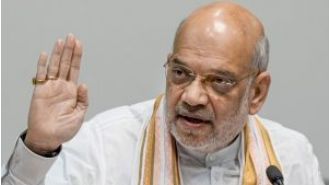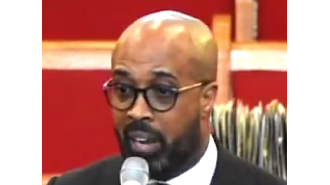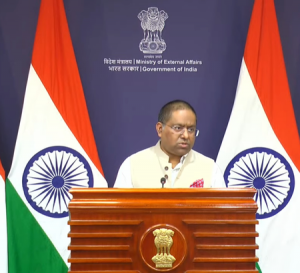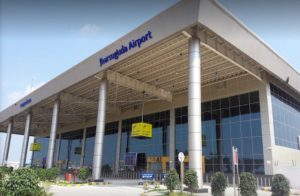Disagreeing with Sadiq Khan's knighthood reveals more about you than him.
The comments say more about bias than his record.

Let's talk about Sadiq Khan's recent knighthood. I mean, come on, if you're mad about it, it's not just because of his performance as Mayor of London. These honours lists always stir up controversy, almost like they're deliberately trying to split opinions.
I mean, let's be real, the whole system is flawed - from how they choose who gets what to what the titles actually mean. But it's still our unique way of acknowledging people who have made a meaningful impact on society. So here's Sadiq Khan, son of a bus driver, who has faced countless personal and professional attacks, now being recognized with one of the highest honours in the country.
It should feel like a victory for Khan and for London's multicultural identity and resilience. But then, of course, came the backlash. A petition, started by a Conservative councillor, got over 200,000 signatures, accusing Khan of being a failure and undeserving of such recognition.
It's a reflection of the deeply divided landscape where public figures are rarely given a fair judgment. The councillor behind the petition, Matthew Goodwin-Freeman, stated, "Sadiq Khan's time as Mayor of London has caused great harm to the city we love. Our once thriving capital is now divided and stagnant, all under his leadership.
Khan has consistently avoided taking responsibility and blames everyone but himself." He also claimed that Londoners were using this petition to hold Khan accountable. But let's not forget, Khan has won three consecutive and decisive mayoral elections, most recently in May 2024 with 43.8% of the vote. That's over a million people who chose him to lead the city.
But when we talk about Khan, we have to look at the bigger picture. He has consistently been a target for his Tory opponents, including Zac Goldsmith and Susan Hall, who used divisive, hateful, and racist language during their failed attempts to defeat him. Goldsmith even went as far as calling Khan 'radical', 'divisive', and a 'dangerous experiment', which the Labour party argued was an attempt to paint Khan as a radicalized Islamist - a claim that Goldsmith denied.
And according to Hope Not Hate, Susan Hall retweeted and replied "Thank you, Katie" to Katie Hopkins' tweet calling Khan 'the nipple height mayor of Londonistabn'. These loaded words and attitudes have definitely influenced how Londoners and the rest of Britain view Khan. When Khan took office in 2016, he inherited a city facing various challenges, including housing shortages, air pollution, and strained transport infrastructure.
And these challenges were only amplified by Brexit, the pandemic, and economic uncertainty. Given all of this, I believe the work he has done is immensely deserving of a knighthood. Thanks to his efforts, the Ultra Low Emission Zone has significantly improved air quality, reducing more pollution than London's airports and rail combined produce.
This has undoubtedly saved the lives of young and vulnerable children - a rare and measurable success in public service. What seemed impossible and unpopular has now become a reality under his determined leadership. Meanwhile, public transport fares were frozen, the underground network expanded, and cycling lanes increased.
Critics may accuse Khan of failing on knife crime, but they conveniently ignore the national cuts to public services that have played a significant role in this issue. Khan has also supported community projects to address the crisis, with millions invested. Blaming him alone ignores the broader national responsibility.
And let's not forget, Khan reintroduced free meals for state school children, a policy that was introduced by the Liberal Democrats in the previous government and scrapped by the Tories afterwards. Some may criticize Khan for his performative gestures and speaking out against Donald Trump. But in a global city like London, symbolism holds cultural and diplomatic value, and Khan's statements against divisive rhetoric are significant.
Now, let's compare Khan's steady, substance-focused approach to the chaotic and flashy leadership of his predecessors, Ken Livingstone and Boris Johnson. Johnson's performance may have been loud and alluring, but it lacked any tangible achievements. So, you have to wonder, why did 200,000 people sign a petition demanding a block to Khan's knighthood?
Is it possible that Khan is the least deserving person to receive such an honour? Well, let's look at the comments from the petition's signatures: 'Khan is not for Britain and not for London' and 'London is now a gang/crime-ridden, cesspit, multicultural melting pot.' It's pretty evident that these comments reveal more about the signers' ideological bias than Khan's record. It's easy to criticize from the sidelines, but leading a global city like London is no easy feat.
Khan's knighthood is a reflection of his resilience and achievements in navigating one of the world's most challenging political landscapes. And if you're still angry about it, perhaps it's time to admit that your anger has nothing to do with his record as a public servant. Whether we love it or hate it, our honour system is rooted in the British Empire and all its complexities, including its history of racism and colonialism.
So, it's time to ask ourselves if our issue is that this system is now recognizing a Muslim leader for his contributions.










